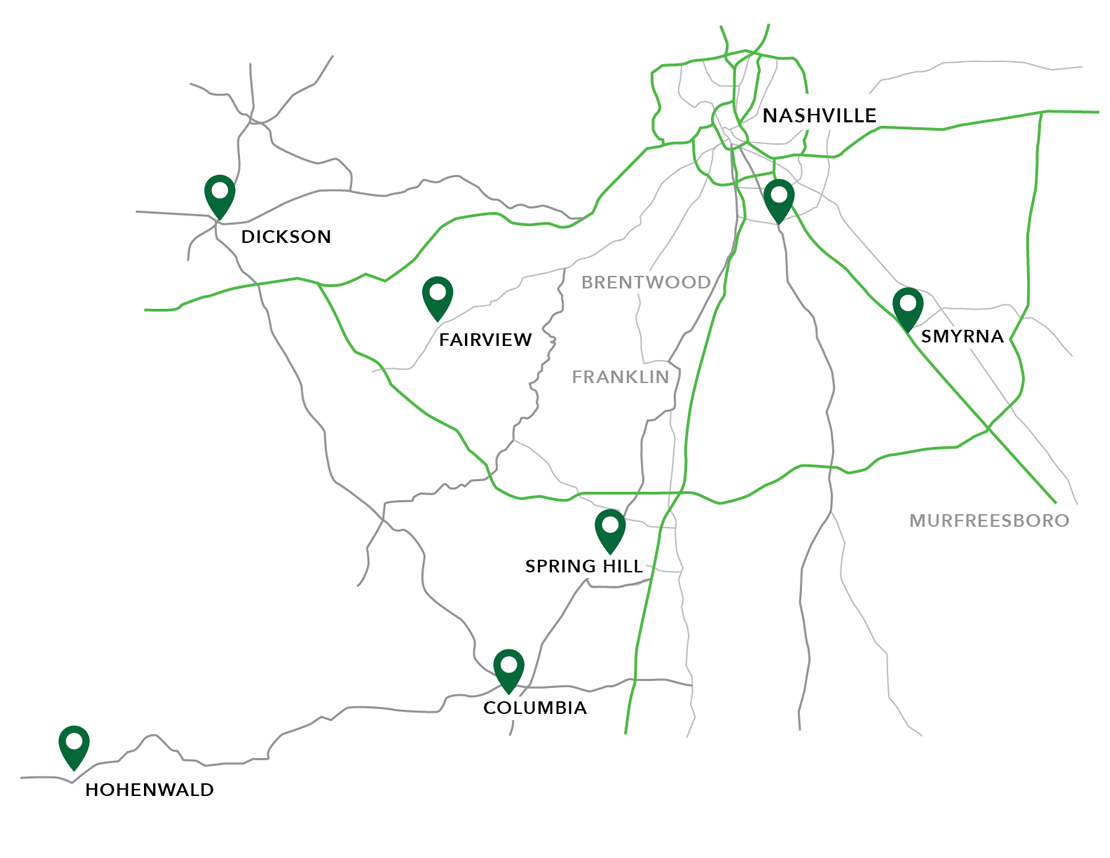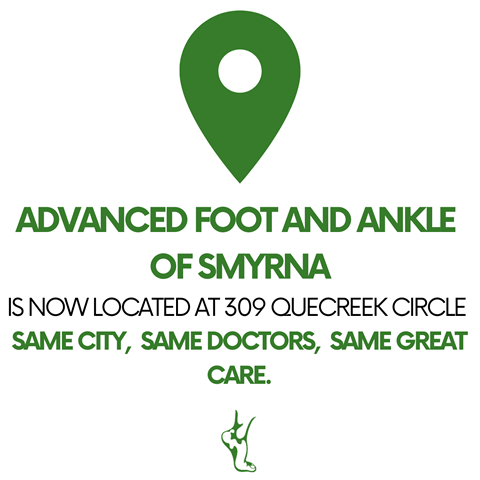Items filtered by date: October 2024
First Morning Step Can Signal Plantar Fasciitis
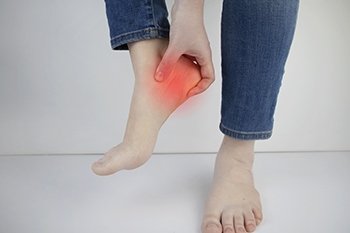
Heel pain, especially first thing in the morning, can often be a sign of plantar fasciitis. This condition occurs when the plantar fascia, a wide band of tissue that runs from your heel to your toes, becomes inflamed or develops small tears. The pain can be sharp, particularly with the first steps after getting out of bed, but it often recedes as you move throughout the day. Plantar fasciitis is more common among people who are overweight, older adults, and athletes, especially those who run on hard surfaces. A podiatrist can help by diagnosing plantar fasciitis through an exam. This foot doctor may recommend treatment that includes certain stretches, choosing more supportive footwear, or taking prescription-strength anti-inflammatory medication. These treatment methods aim to reduce inflammation and support the tissue's healing process. If you have heel pain first thing in the morning, it is suggested that you visit a podiatrist for an exam to find out if you have plantar fasciitis.
Plantar fasciitis is a common foot condition that is often caused by a strain injury. If you are experiencing heel pain or symptoms of plantar fasciitis, contact one of our podiatrists from Advanced Foot & Ankle Care Centers. Our doctors can provide the care you need to keep you pain-free and on your feet.
What Is Plantar Fasciitis?
Plantar fasciitis is one of the most common causes of heel pain. The plantar fascia is a ligament that connects your heel to the front of your foot. When this ligament becomes inflamed, plantar fasciitis is the result. If you have plantar fasciitis you will have a stabbing pain that usually occurs with your first steps in the morning. As the day progresses and you walk around more, this pain will start to disappear, but it will return after long periods of standing or sitting.
What Causes Plantar Fasciitis?
- Excessive running
- Having high arches in your feet
- Other foot issues such as flat feet
- Pregnancy (due to the sudden weight gain)
- Being on your feet very often
There are some risk factors that may make you more likely to develop plantar fasciitis compared to others. The condition most commonly affects adults between the ages of 40 and 60. It also tends to affect people who are obese because the extra pounds result in extra stress being placed on the plantar fascia.
Prevention
- Take good care of your feet – Wear shoes that have good arch support and heel cushioning.
- Maintain a healthy weight
- If you are a runner, alternate running with other sports that won’t cause heel pain
There are a variety of treatment options available for plantar fasciitis along with the pain that accompanies it. Additionally, physical therapy is a very important component in the treatment process. It is important that you meet with your podiatrist to determine which treatment option is best for you.
If you have any questions, please feel free to contact our offices located in Nashville, Smyrna, Spring Hill, Columbia, Dickson, Fairview, Hohenwald, TN and the Middle Tennessee community . We offer the newest diagnostic and treatment technologies for all your foot care needs.
A Simple Guide for Measuring Your Feet
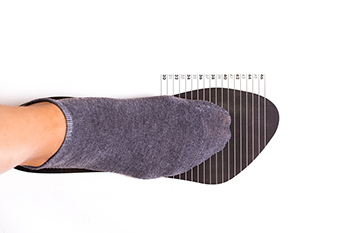
Determining your correct shoe size is essential for comfort and foot health. Begin by gathering a piece of paper, a pencil, and a ruler. Place the paper on a flat surface and stand on it with your heel against the wall. Trace the outline of your foot, ensuring the pencil remains vertical for accuracy. Once you have the outline, measure the length from the heel to the longest toe using the ruler. It is also helpful to measure the width of your foot at its widest point. Compare these measurements with a shoe size chart to find your ideal size. Remember to account for any variations between brands, as sizing can differ. Trying shoes on later in the day is recommended, as feet tend to swell, ensuring a more accurate fit and overall comfort. Wearing shoes that fit right may help to prevent painful foot conditions. If you have foot pain from wearing the wrong size shoes or need help determining your correct size, it is suggested that you consult a podiatrist.
Getting the right shoe size is an important part of proper foot health. Seek the assistance of one of our podiatrists from Advanced Foot & Ankle Care Centers. Our doctors will provide the care you need to keep you pain-free and on your feet.
Getting the Right Shoe Size
There are many people who wear shoes that are the incorrect size, negatively affecting their feet and posture. Selecting the right shoes is not a difficult process, so long as you keep several things in mind when it comes to choosing the right pair.
- When visiting the shoe store, use the tools available to measure your foot.
- Be sure there is ‘wiggle room’. There should be about an inch between your toes and the tip of your shoes.
- Do not always assume you are the same size, as manufacturers run differently.
- Purchase shoes later in the day, as your feet swell as the day progresses.
- If a shoe is not comfortable, it is not suitable. Most shoes can’t be ‘broken in’, and comfort should be the ultimate goal when it comes to choosing the right pair of shoes
As our feet hold our body weight and keep us moving, it is important to treat them right. Picking the right pair of shoes can provide your feet comfort and mobility without pain.
If you have any questions, please feel free to contact our offices located in Nashville, Smyrna, Spring Hill, Columbia, Dickson, Fairview, Hohenwald, TN and the Middle Tennessee community . We offer the newest diagnostic and treatment technologies for all your foot care needs.
Safe Falling Strategies for Seniors and Prevention Tips
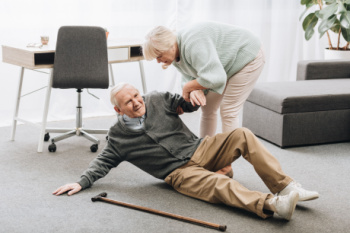
As people age, the risk of falling increases, making it essential to know how to fall safely. If a fall is unavoidable, try to relax your body, and aim to land on your side rather than your back or wrists to reduce injury risk. Tucking your chin toward your chest can help protect your head. Wearing appropriate shoes with good grip can prevent slips. Staying active with exercises that improve balance and strength enhances stability. Regular vision and health check-ups can also identify issues that increase fall risk. Creating a safe home environment by removing clutter, securing loose rugs, and installing grab bars in critical areas can further reduce chances of falls. Falling can injure the feet, as well as other body parts. If this has happened to you, it is suggested that you consult a podiatrist who can offer effective treatment methods and fall prevention tips.
Preventing falls among the elderly is very important. If you are older and have fallen or fear that you are prone to falling, consult with one of our podiatrists from Advanced Foot & Ankle Care Centers. Our doctors will assess your condition and provide you with quality advice and care.
Every 11 seconds, an elderly American is being treated in an emergency room for a fall related injury. Falls are the leading cause of head and hip injuries for those 65 and older. Due to decreases in strength, balance, senses, and lack of awareness, elderly persons are very susceptible to falling. Thankfully, there are a number of things older persons can do to prevent falls.
How to Prevent Falls
Some effective methods that older persons can do to prevent falls include:
- Enrolling in strength and balance exercise program to increase balance and strength
- Periodically having your sight and hearing checked
- Discuss any medications you have with a doctor to see if it increases the risk of falling
- Clearing the house of falling hazards and installing devices like grab bars and railings
- Utilizing a walker or cane
- Wearing shoes that provide good support and cushioning
- Talking to family members about falling and increasing awareness
Falling can be a traumatic and embarrassing experience for elderly persons; this can make them less willing to leave the house, and less willing to talk to someone about their fears of falling. Doing such things, however, will increase the likelihood of tripping or losing one’s balance. Knowing the causes of falling and how to prevent them is the best way to mitigate the risk of serious injury.
If you have any questions, please feel free to contact our offices located in Nashville, Smyrna, Spring Hill, Columbia, Dickson, Fairview, Hohenwald, TN and the Middle Tennessee community . We offer the newest diagnostic and treatment technologies for all your foot care needs.
Gout Pain Can Be Managed
Flat Feet in Children
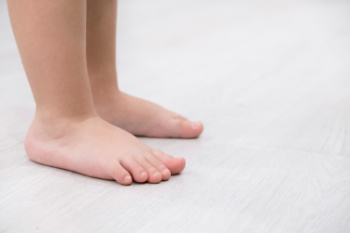
Flat feet, or pes planus, occur when a child’s feet lack a noticeable arch, causing the entire foot to touch the ground. While babies and toddlers naturally have flat feet, most develop arches as they grow. However, in some cases, the arch never forms. Signs of flat feet include feet with no visible arch and, in some cases, discomfort or pain in the feet, ankles, or knees. Flat feet can result from having tight Achilles tendons, muscle imbalances, or irregular bone formation. Additionally, certain genetic disorders, like Down syndrome or osteogenesis imperfecta, can contribute to flat feet. Sometimes, the condition runs in families. If you notice signs of flat feet in your child and they seem to be experiencing pain or discomfort, it is a good idea to seek advice from a podiatrist. They can offer guidance on managing the condition and help ensure your child’s feet stay healthy and pain-free.
The health of a child’s feet is vital to their overall well-being. If you have any questions regarding foot health, contact one of our podiatrists of Advanced Foot & Ankle Care Centers. Our doctors can provide the care you need to keep you pain-free and on your feet.
Tips for Keeping Children's Feet Healthy
- Make sure their shoes fit properly
- Look for any signs of in-toeing or out-toeing
- Check to see if they have Clubfoot (condition that affects your child’s foot and ankle, twisting the heel and toes inward) which is one of the most common nonmajor birth defects.
- Lightly cover your baby’s feet (Tight covers may keep your baby from moving their feet freely, and could prevent normal development)
- Allow your toddler to go shoeless (Shoes can be restricting for a young child’s foot)
- Cut toenails straight across to avoid ingrown toenails
- Keep your child’s foot clean and dry
- Cover cuts and scrapes. Wash any scratches with soap and water and cover them with a bandage until they’ve healed.
If you have any questions, please feel free to contact our offices located in Nashville, Smyrna, Spring Hill, Columbia, Dickson, Fairview, Hohenwald, TN and the Middle Tennessee community . We offer the newest diagnostic and treatment technologies for all your foot care needs.
What Is Peripheral Neuropathy and How Does it Feel?
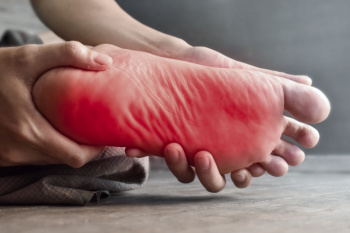
Peripheral neuropathy is a condition affecting the peripheral nervous system, which consists of the nerves outside the brain and spinal cord. This system relays information between the central nervous system and the rest of the body, controlling sensations, movements, and autonomic functions. Peripheral neuropathy occurs when these nerves are damaged, leading to symptoms like tingling, numbness, pain, and weakness, often in the hands and feet. It can result from diabetes, infections, autoimmune diseases, toxins, or even trauma. Small fiber neuropathy specifically affects the small sensory fibers responsible for pain and temperature regulation. This type of neuropathy can cause burning or stabbing pain, tingling, or sensitivity to temperature. It often occurs in conditions like diabetes, but it can also be caused by other factors such as genetic disorders or autoimmune diseases. If you are feeling symptoms of peripheral neuropathy, it is suggested that you schedule an appointment with a podiatrist for an early diagnosis and management to prevent worsening of symptoms and nerve damage.
Neuropathy
Neuropathy can be a potentially serious condition, especially if it is left undiagnosed. If you have any concerns that you may be experiencing nerve loss in your feet, consult with one of our podiatrists from Advanced Foot & Ankle Care Centers. Our doctors will assess your condition and provide you with quality foot and ankle treatment for neuropathy.
What Is Neuropathy?
Neuropathy is a condition that leads to damage to the nerves in the body. Peripheral neuropathy, or neuropathy that affects your peripheral nervous system, usually occurs in the feet. Neuropathy can be triggered by a number of different causes. Such causes include diabetes, infections, cancers, disorders, and toxic substances.
Symptoms of Neuropathy Include:
- Numbness
- Sensation loss
- Prickling and tingling sensations
- Throbbing, freezing, burning pains
- Muscle weakness
Those with diabetes are at serious risk due to being unable to feel an ulcer on their feet. Diabetics usually also suffer from poor blood circulation. This can lead to the wound not healing, infections occurring, and the limb may have to be amputated.
Treatment
To treat neuropathy in the foot, podiatrists will first diagnose the cause of the neuropathy. Figuring out the underlying cause of the neuropathy will allow the podiatrist to prescribe the best treatment, whether it be caused by diabetes, toxic substance exposure, infection, etc. If the nerve has not died, then it’s possible that sensation may be able to return to the foot.
Pain medication may be issued for pain. Electrical nerve stimulation can be used to stimulate nerves. If the neuropathy is caused from pressure on the nerves, then surgery may be necessary.
If you have any questions, please feel free to contact our offices located in Nashville, Smyrna, Spring Hill, Columbia, Dickson, Fairview, Hohenwald, TN and the Middle Tennessee community . We offer the newest diagnostic and treatment technologies for all your foot care needs.

